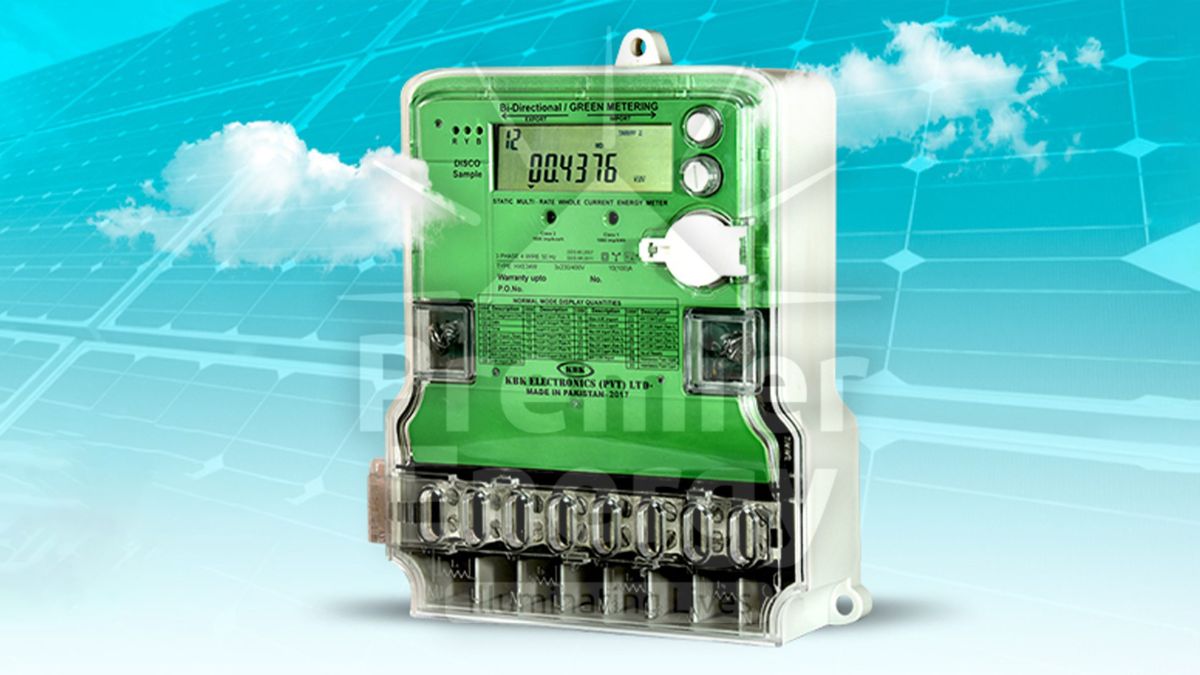Pakistan is rapidly embracing solar energy as a sustainable and cost-effective solution to its energy challenges. One of the main drivers of this shift is the net metering policy, which allows solar energy users to sell their excess electricity back to the grid. Understanding net meter prices and the latest developments in solar solutions is crucial for anyone considering solar power in Pakistan.
What is Net Metering?
Net metering is a system that enables consumers who generate their own electricity through solar panels to feed surplus energy back into the national grid. This surplus electricity is credited against their electricity bills, effectively reducing monthly costs. Net metering encourages the use of clean energy and helps consumers save money while contributing to a greener environment.
Read More: 1,203 Utility Stores Closed Under USC’s Restructuring, NA Panel Informed
Latest Changes in Net Meter Prices and Policies
In 2025, Pakistan’s government revised its net metering policies to create a more balanced and sustainable energy system:
- Reduced Buyback Rate: The price at which surplus electricity is purchased by utility companies has been reduced from Rs21 to Rs10 per unit. This change impacts the return on investment for solar users but aims to make the system fairer for all consumers.
- Increased Grid Electricity Prices: Electricity rates from the grid are now Rs42 per unit during off-peak hours and Rs48 during peak hours. This encourages consumers to rely more on their solar power systems.
- Capacity Limitations: New solar installations must not exceed 10% of the sanctioned electricity load, down from the previous 50%. This prevents overloading the grid and ensures fair energy distribution.
These changes balance the interests of solar users and non-solar consumers, promoting fairness and sustainability.
Affordable Solar Panel Prices and Installation Costs
Despite the reduced buyback rates, solar panels and installation have become more affordable in Pakistan:
- Solar Panel Prices: High-quality solar panels, such as 585-watt A-grade models, have dropped from Rs22,000 to about Rs16,500 per panel.
- Installation Costs: Depending on system size, installation expenses range from Rs175,000 for small setups to over Rs1.2 million for larger systems.
Typical pricing for solar systems in Pakistan includes:
| Capacity | Price Range (PKR) |
|---|---|
| 5 kW | 525,000 – 550,000 |
| 7 kW | 625,000 – 650,000 |
| 10 kW | 850,000 – 875,000 |
| 12 kW | 978,000 – 1,000,000 |
| 15 kW | 1,150,000 – 1,200,000 |
Battery storage solutions are also gaining popularity, providing power during outages and adding to system costs but increasing energy independence.
Read More: No Additional Taxes On Imports Of Solar Panels
Why Solar Net Metering is a Smart Choice
- Lower Electricity Bills: Net metering reduces monthly bills by offsetting grid consumption.
- Environmentally Friendly: Solar power lowers carbon emissions.
- Energy Security: Battery-backed systems offer power during blackouts.
- Long-Term Savings: Despite policy changes, solar remains a cost-effective investment.
Conclusion
Pakistan’s updated net metering policies and falling solar panel prices create an environment where solar energy remains a viable and affordable option. Consumers should carefully assess their energy needs and consult professional installers to benefit from solar’s long-term advantages. Keep visiting: Bloom Pakistan
Read More: 1-Year Sukuk Cut-Off Yields Halve in Six Months as Interest Rates Decline









